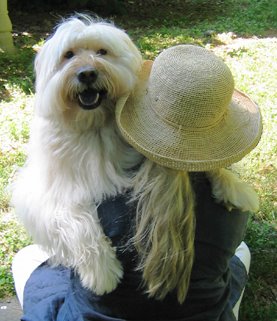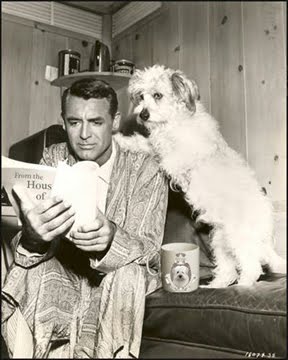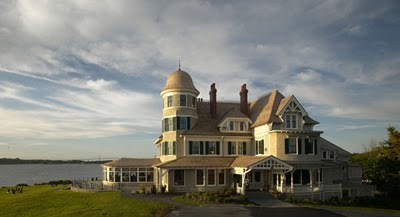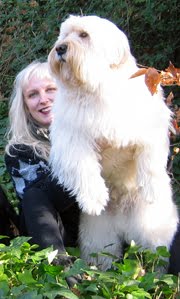What Do We Do?
Thursday evening, following a long day of gardening, we decided to forego a home-cooked dinner and head over to our neighbourhood pizza parlor, an establishment whose dress code would graciously welcome our scruffier than usual appearances. A tempting spinach salad had just been sat down in front of me when something on one of the ubiquitous televisions hanging round the room ensnared my eye. Looking up I saw the two photographs for the first time. Two young, very young, men in baseball caps who bore more than a passing resemblance to any one of the college students sprawled in the seats of the dining room in which I now found myself. The expressions on the faces of these two young men in the video now playing over and over seemed calm, almost bemused, as they walked through the crowd of children and parents, lovers and friends, carrying their homemade instruments of horror as easily as lunch sacks.
Suddenly, my tasty spinach salad lost its charm. I let my gaze wander the room, stopping here and there to linger on the innocence of the children, the warm communication of families, the laughter of the young. And I thought, not for the first time, sadly, what do we do about evil?
Learning more about the two young men who assembled and placed the bombs on the pavements of Boston and destroyed the lives of so many, one discovers lives not unlike those of the people we see everyday. Their friends are shocked. Their teachers flabbergasted. Their uncle is on television wishing he could kneel before all the victims and beg forgiveness for his family. The more we hear, the more stridently our questions demand to be answered. How can we make sense of this? What do we do about evil?
Security is a word oft spoken these days. Here in the States, we have a governmental department devoted entirely to Homeland Security. We gladly have our handbags checked, we obediently take off our shoes. But as anyone who has ever made their way through the throngs at an international airport can tell you, security, though worked for and hoped for, can never be guaranteed. Indeed, these days it so often seems we reel from tragedy to tragedy like drunken men with nary a clue what to do. Though it seems to me we should have evolved far above and beyond the Wild West days, there are still those who say we would all be safer if we were all armed. At the other end of the spectrum there are those who simply refuse to go anywhere outside of their comfort zone at all, missing out of so much of what this marvelous world has to offer them. Either choice is unacceptable to me.
Throughout this long, heartbreaking week I have felt the pull of despair. In a world where young men can blithely stroll through a crowd and sit down a bomb beside little children without pause, how is it possible to hold back the darkness? We look, I suppose, to those who ran not from but towards the bomb’s concussion to help the wounded. We take heart by our President’s words ... “We also know this — the American people refuse to be terrorized. Because what the world saw yesterday in the aftermath of the explosions were stories of heroism and kindness, and generosity and love: Exhausted runners who kept running to the nearest hospital to give blood, and those who stayed to tend to the wounded, some tearing off their own clothes to make tourniquets. The first responders who ran into the chaos to save lives. The men and women who are still treating the wounded at some of the best hospitals in the world, and the medical students who hurried to help, saying “When we heard, we all came in.” The priests who opened their churches and ministered to the hurt and the fearful. And the good people of Boston who opened their homes to the victims of this attack and those shaken by it. So if you want to know who we are, what America is, how we respond to evil — that’s it. Selflessly. Compassionately. Unafraid.”
The human heart is not designed to comprehend evil. When we see it rise up before us as we did this week in Boston, in such a malignant, unholy fashion, we recoil, as well we should. But no credit, no good, can come to us if we stay in that horrible place of fear and disheartenment. We must look for, and fight for, the good and the beautiful, the joyful, the sweet. And we must bring those qualities with us into those places where they are hardest to find. Even in the smallest decisions, we must choose light over darkness. If we are to have any hope, we must choose love over hate. Every time.
“When I despair, I remember that all through history the way of truth and love have always won. There have been tyrants and murderers, and for a time, they can seem invincible, but in the end, they always fall. Think of it--always.”
Mahatma Gandhi










































